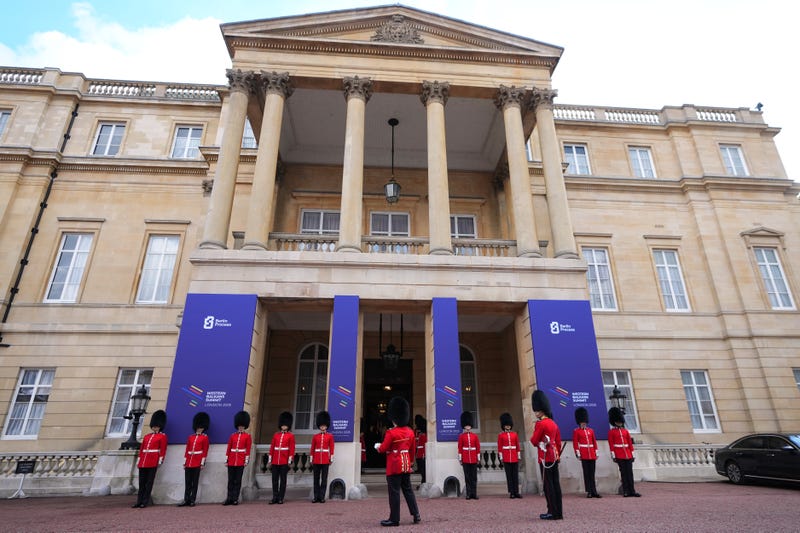
LONDON (AP) — Leaders of six Western Balkan nations are meeting British and European officials in London on Wednesday for talks on migration, security and economic growth in a volatile region where Russia seeks to wield influence.
Prime Minister Keir Starmer welcomed heads of government from Albania, Bosnia, Kosovo, Montenegro, North Macedonia and Serbia, along with German Chancellor Friedrich Merz and diplomats from other European nations to Lancaster House, a government-owned mansion in London, for the one-day summit. The summit is being held as part of the Berlin Process, launched in 2014 to keep the southeastern European countries working toward European Union membership.
The only Western Balkan nation to join the EU is Croatia, which became a member in 2013. Progress for the others has stalled, with countries at various stages of the journey, and in recent years tensions have flared between Serbia and Kosovo, a former Serbian province whose independence is not recognized by Belgrade.
The EU’s openness to accept new members has grown since Russia's full-scale invasion of Ukraine in 2022. There are concerns the war in Ukraine and Russia’s deepening confrontation with the West could spill over into a region still scarred by its own conflicts.
The U.K. is hosting the annual summit despite leaving the EU in 2020. Starmer’s center-left government is hoping to make progress on tackling the drug trade, bolstering Western Balkan nations’ defenses against interference from Moscow and — a particular British priority — curbing unauthorized migration.
Gangs have smuggled hundreds of thousands of people to the EU via the Western Balkans in recent years, and Britain says a quarter of migrants reaching the U.K. in small boats across the English Channel have traveled through the region.
“There’s a criminal route through the Western Balkans bringing illegal migrants to the U.K., and we’re determined to shut it down by working with European partners,” Starmer said.
Britain imposed sanctions Wednesday on several Balkan criminal gangs and financiers it says facilitate people smuggling. Those banned from traveling to Britain or using the U.K. financial system include members of the Kosovo-based Krasniqi forgery network and ALPA Trading FZCO, a company alleged to finance people-smuggling gangs.
Britain is hoping to build on a joint task force with Albania that has helped — through a returns agreement and local projects in areas the migrants come from — reduce the number of Albanian migrants trying to reach the U.K., from 12,000 in 2022 to some 600 in 2024.
Britain also has sent law enforcement officers to the region to work with the EU border agency, Frontex, and it is seeking countries willing to host “return hubs” where rejected asylum-seekers could be held until they can be deported.
The leaders of Albania and Montenegro both expressed reluctance to have return hubs on their soil.
“When it comes to the hubs, or whatever they are called, I’ve said it, and I repeat — never in Albania,” Albanian Prime Minister Edi Rama said Tuesday at the Chatham House think tank.
Montenegro’s Prime Minister Milojko Spajic said his country is “not part of the migrant routes through the Balkans” because its railway infrastructure isn’t developed enough.
He said might be willing to accept a migrant returns hub if Britain agreed to “invest 10 billion euros into building railways.”